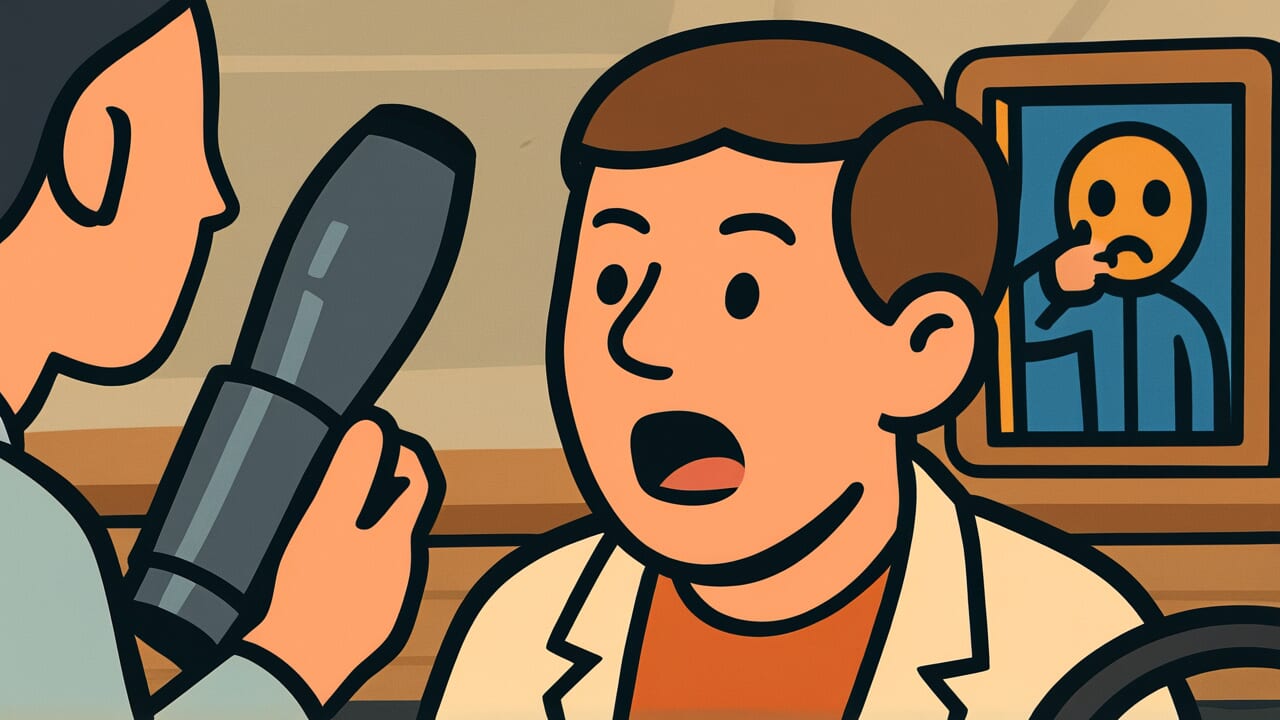How to Read “Hard words break no bones”
Hard words break no bones
[HARD wurds brayk noh bohnz]
All words use common pronunciation.
Meaning of “Hard words break no bones”
Simply put, this proverb means that harsh or cruel words cannot cause physical injury like sticks and stones can.
The literal meaning focuses on the difference between words and physical objects. Hard words refers to harsh, cruel, or angry speech. Break no bones means they cannot cause actual physical damage to your body. The proverb reminds us that words exist in a different realm than physical violence.
We use this saying today when someone feels hurt by criticism or insults. It appears in arguments between friends, family conflicts, or workplace disagreements. People often hear it when they complain about someone being mean or saying hurtful things. The phrase suggests that emotional pain from words should not affect us as much as physical pain would.
What makes this wisdom interesting is how it challenges our natural reactions. Most people feel genuine pain when others say cruel things to them. The proverb asks us to step back and remember that words cannot actually harm our bodies. It encourages a tougher mindset about verbal attacks and criticism from others.
Origin and Etymology
The exact origin of this specific phrase is unknown, though it represents ancient wisdom about words versus physical harm.
Similar ideas appear throughout history in many cultures and languages. Ancient societies understood the difference between physical violence and verbal attacks. People needed ways to cope with harsh words from others, especially in close communities where conflict was common. Sayings like this helped people maintain perspective during arguments and disagreements.
The concept spread through oral tradition and written collections of folk wisdom. Over time, different versions emerged with similar meanings. Some cultures emphasized the temporary nature of words, while others focused on building mental toughness. The core message remained consistent across different societies and time periods.
Interesting Facts
The phrase uses simple, concrete imagery to make an abstract point about emotional resilience. “Hard words” creates a physical metaphor for harsh speech, making the intangible concept of cruel language feel more solid. “Break no bones” provides a clear medical reference that everyone can understand, since broken bones represent obvious, measurable injury.
This proverb follows a common pattern in folk wisdom of contrasting physical and emotional experiences. Many traditional sayings use the body as a reference point for understanding feelings and relationships.
Usage Examples
- Mother to teenage daughter: “I know the coach was harsh about your performance, but don’t let it crush your spirit – hard words break no bones.”
- Manager to employee: “Yes, the client was extremely critical of our proposal, but we can fix this and move forward – hard words break no bones.”
Universal Wisdom
This proverb reveals a fundamental tension in human nature between our physical and emotional vulnerabilities. Throughout history, people have struggled with the strange reality that words can hurt us deeply even though they cause no bodily harm. Our ancestors observed that humans often react to verbal attacks as if they were physical threats, creating unnecessary suffering.
The wisdom addresses a crucial survival mechanism gone wrong. In dangerous situations, our bodies prepare for physical threats by releasing stress hormones and heightening our senses. But this same system activates when someone insults us or speaks harshly, even though no real danger exists. The proverb encourages us to recognize this mismatch between our emotional reactions and actual threats to our wellbeing.
What makes this insight universally relevant is how it touches on the power we give to other people’s opinions. Humans are social creatures who depend on group acceptance for survival, so criticism naturally feels threatening. However, not all harsh words deserve the same emotional weight as genuine dangers. The proverb suggests that developing this distinction is essential for mental peace and resilience throughout life.
When AI Hears This
Our ancient alarm systems can’t tell real danger from hurt feelings. When someone insults us, our brain screams “threat detected” just like facing a wild animal. This creates a strange bug in human thinking. We know words can’t actually harm us, yet we still panic anyway.
This mismatch explains why people get so worked up over criticism or mean comments. Our survival instincts treat social attacks like physical ones. We waste huge amounts of energy defending against imaginary dangers. Meanwhile, we often ignore actual risks that could really hurt us.
What fascinates me is how this “flaw” might actually be useful. Humans who cared deeply about their reputation probably survived better in groups. Your overactive social alarm system keeps you connected to others. It’s beautifully inefficient – like having a smoke detector that goes off when you burn toast.
Lessons for Today
Living with this wisdom requires developing a clearer sense of what truly threatens our wellbeing versus what simply feels uncomfortable. When someone speaks harshly, the natural first step involves recognizing the difference between emotional discomfort and actual danger. This does not mean ignoring all criticism or becoming callous to others’ words, but rather maintaining perspective about their real impact on our lives.
In relationships, this understanding helps separate temporary conflicts from lasting damage. Arguments and disagreements often involve heated words that people later regret. Remembering that harsh words break no bones can prevent small disputes from becoming major rifts. It also encourages focusing on the underlying issues rather than getting stuck on the specific words someone used in anger or frustration.
The challenge lies in balancing emotional awareness with practical resilience. Completely ignoring how words affect us is neither possible nor healthy, since communication shapes our relationships and self-understanding. Instead, this wisdom suggests treating verbal attacks like bad weather – unpleasant to experience but temporary and ultimately harmless to our core wellbeing. With practice, this perspective can reduce the power that others’ harsh words have over our peace of mind.



Comments